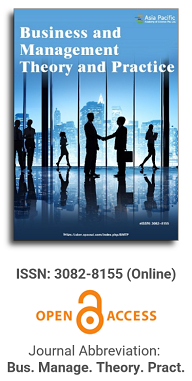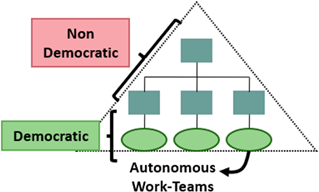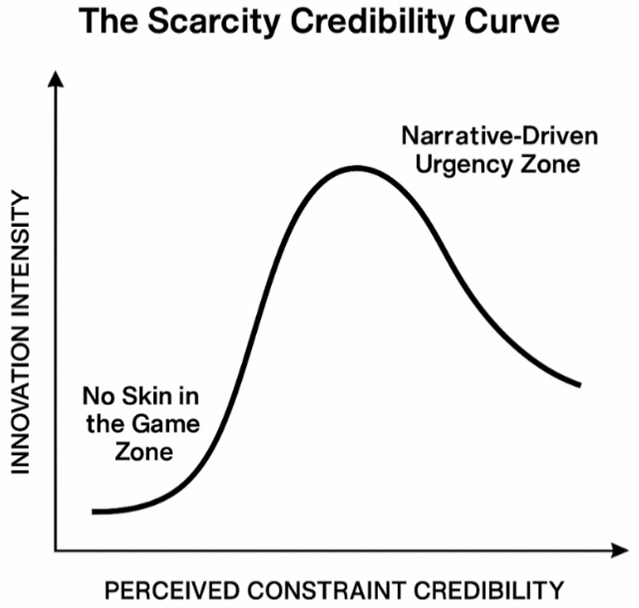
Asia Pacific Academy of Science Pte. Ltd. (APACSCI) specializes in international journal publishing. APACSCI adopts the open access publishing model and provides an important communication bridge for academic groups whose interest fields include engineering, technology, medicine, computer, mathematics, agriculture and forestry, and environment.


Sustainability target setting and incentive design: A literature review
Vol 2, Issue 2, 2025
Download PDF
Abstract
The integration of sustainability targets and their connection to executive compensation is emerging as a new facet of corporate strategies in response to the low-carbon transition, ESG-driven demands from institutional investors, regulatory mandates, and commitments to corporate social responsibility (CSR). The purpose of this research is to explore issues related to sustainability target-setting and the associated methodologies. This paper summarizes the prior work on target setting and sustainability targets, and the results from previous studies on the reason and rationality of setting sustainability targets were discussed. It also pointed out the issues in sustainability targets and related incentive design. Based on this, several suggestions are offered to assist companies in developing and setting sustainability targets and goals.
Keywords
References
1. Brown K. Global environmental change I. Progress in Human Geography. 2013; 38(1): 107-117. doi: 10.1177/0309132513498837
2. Beermann M. Linking corporate climate adaptation strategies with resilience thinking. Journal of Cleaner Production. 2011; 19(8): 836-842. doi: 10.1016/j.jclepro.2010.10.017
3. Anderson SW, Dekker HC, Sedatole KL. An Empirical Examination of Goals and Performance-to-Goal Following the Introduction of an Incentive Bonus Plan with Participative Goal Setting. Management Science. 2010; 56(1): 90-109. doi: 10.1287/mnsc.1090.1088
4. Arnold MC, Artz M. Target difficulty, target flexibility, and firm performance: Evidence from business units’ targets. Accounting, Organizations and Society. 2015; 40: 61-77. doi: 10.1016/j.aos.2014.12.002
5. Matějka M. Target Setting in Multi-Divisional Organizations. Journal of Management Accounting Research. 2018; 30(3): 13-27. doi: 10.2308/jmar-52159
6. Feichter C, Grabner I, Moers F. Target Setting in Multi-Divisional Firms: State of the Art and Avenues for Future Research. Journal of Management Accounting Research. 2018; 30(3): 29-54. doi: 10.2308/jmar-52158
7. Niven K, Healy C. Susceptibility to the ‘Dark Side’ of Goal-Setting: Does Moral Justification Influence the Effect of Goals on Unethical Behavior? Journal of Business Ethics. 2015; 137(1): 115-127. doi: 10.1007/s10551-015-2545-0
8. Welsh DT, Baer MD, Sessions H, et al. Motivated to disengage: The ethical consequences of goal commitment and moral disengagement in goal setting. Journal of Organizational Behavior. 2020; 41(7): 663-677. doi: 10.1002/job.2467
9. Schweitzer ME, Ordonez L, Douma B. Goal setting as a motivator of unethical behavior. Academy of Management Journal. 2004; 47(3): 422-432. doi: 10.2307/20159591
10. Welsh DT, Ordóñez LD. The dark side of consecutive high performance goals: Linking goal setting, depletion, and unethical behavior. Organizational Behavior and Human Decision Processes. 2014; 123(2): 79-89. doi: 10.1016/j.obhdp.2013.07.006
11. Vveinhardt J, Sroka W. Mobbing and corporate social responsibility: does the status of the organisation guarantee employee wellbeing and intentions to stay in the job? Oeconomia Copernicana. 2020; 11(4): 743-778. doi: 10.24136/oc.2020.030
12. Kobayashi K, Eweje G, Tappin D. Changing overwork culture: Stakeholder management for employee wellbeing and social sustainability in large Japanese companies. Corporate Social Responsibility and Environmental Management. 2024; 31(5): 5032-5048. doi: 10.1002/csr.2844
13. Kobayashi K, Eweje G, Tappin D. Employee wellbeing and human sustainability: Perspectives of managers in large Japanese corporations. Business Strategy and the Environment. 2018; 27(7): 801-810. doi: 10.1002/bse.2032
14. Gorgenyi-Hegyes E, Nathan RJ, Fekete-Farkas M. Workplace Health Promotion, Employee Wellbeing and Loyalty during Covid-19 Pandemic—Large Scale Empirical Evidence from Hungary. Economies. 2021; 9(2): 55. doi: 10.3390/economies9020055
15. Luo L, Tang Q. Corporate governance and carbon performance: role of carbon strategy and awareness of climate risk. Accounting & Finance. 2020; 61(2): 2891-2934. doi: 10.1111/acfi.12687
16. Ioannou I, Li SX, Serafeim G. The Effect of Target Difficulty on Target Completion: The Case of Reducing Carbon Emissions. The Accounting Review. 2015; 91(5): 1467-1492. doi: 10.2308/accr-51307
17. Aranda C, Arellano J, Davila A. Organizational Learning in Target Setting. Academy of Management Journal. 2017; 60(3): 1189-1211. doi: 10.5465/amj.2014.0897
18. Yitzhaky L, Bahli B. Target Setting And Firm Performance: A Review. Journal of Applied Business Research (JABR). 2021; 37(3): 81-94. doi: 10.19030/jabr.v37i3.10375
19. Liu X (Kelvin), Zhang Y (May). Effects of Target Timing and Contract Frame on Individual Performance. European Accounting Review. 2014; 24(2): 329-345. doi: 10.1080/09638180.2014.942337
20. Indjejikian RJ, Matějka M, Schloetzer JD. Target Ratcheting and Incentives: Theory, Evidence, and New Opportunities. The Accounting Review. 2014; 89(4): 1259-1267. doi: 10.2308/accr-50745
21. Locke EA, Latham GP. A theory of goal setting & task performance. Prentice Hall; 1990.
22. Tosi HL, Locke EA, Latham GP. A Theory of Goal Setting and Task Performance. The Academy of Management Review. 1991; 16(2): 480. doi: 10.2307/258875
23. Locke EA, Latham GP. Building a practically useful theory of goal setting and task motivation: A 35-year odyssey. American Psychologist. 2002; 57(9): 705-717. doi: 10.1037/0003-066x.57.9.705
24. Matějka M, Ray K. Balancing difficulty of performance targets: theory and evidence. Review of Accounting Studies. 2017; 22(4): 1666-1697. doi: 10.1007/s11142-017-9420-4
25. Humphreys KA. The balanced scorecard: Do managers need a strategy map when evaluating performance? Accounting & Finance. 2023; 63(4): 4357-4373. doi: 10.1111/acfi.13097
26. Dorf RC, Raitanen M. The Balanced Scorecard: Translating Strategy Into Action. Proceedings of the IEEE. 1997; 85(9): 1509-1510. doi: 10.1109/jproc.1997.628729
27. Epstein MJ, Manzoni JF. The Balanced Scorecard and Tableau de Bord: translating strategy into action. Management Accounting (New York, N.Y.). 1997; 79(2): 28.
28. Epstein M, Manzoni JF. Implementing corporate strategy: From Tableaux de Bord to balanced scorecards. European Management Journal. 1998; 16(2): 190-203. doi: 10.1016/S0263-2373(97)00087-X
29. Ayoup H, Omar N, Abdul Rahman IK. Balanced Scorecard and Strategic Alignment: A Malaysian Case. International Journal of Economics and Financial Issues. 2016; 6(4S).
30. Kaplan RS. The balanced scorecard: comments on balanced scorecard commentaries. Hoque Z, ed. Journal of Accounting & Organizational Change. 2012; 8(4): 539-545. doi: 10.1108/18325911211273527
31. Busco C, Quattrone P. Exploring How the Balanced Scorecard Engages and Unfolds: Articulating the Visual Power of Accounting Inscriptions. Contemporary Accounting Research. 2014; 32(3): 1236-1262. doi: 10.1111/1911-3846.12105
32. Hoque Z. 20 years of studies on the balanced scorecard: Trends, accomplishments, gaps and opportunities for future research. The British Accounting Review. 2014; 46(1): 33-59. doi: 10.1016/j.bar.2013.10.003
33. Chehimi M, Naro G. Balanced Scorecards and sustainability Balanced Scorecards for corporate social responsibility strategic alignment: A systematic literature review. Journal of Environmental Management. 2024; 367: 122000. doi: 10.1016/j.jenvman.2024.122000
34. Bento RF, Mertins L, White LF. Ideology and the Balanced Scorecard: An Empirical Exploration of the Tension Between Shareholder Value Maximization and Corporate Social Responsibility. Journal of Business Ethics. 2016; 142(4): 769-789. doi: 10.1007/s10551-016-3053-6
35. Alatawi IA, Ntim CG, Zras A, et al. CSR, financial and non-financial performance in the tourism sector: A systematic literature review and future research agenda. International Review of Financial Analysis. 2023; 89: 102734. doi: 10.1016/j.irfa.2023.102734
36. Richards M. When do Non-financial Goals Benefit Stakeholders? Theorizing on Care and Power in Family Firms. Journal of Business Ethics. 2022; 184(2): 333-351. doi: 10.1007/s10551-022-05046-9
37. United Nations. The Sustainable Development Goals Report 2024. Available online: https://unstats.un.org/sdgs/report/2024/ (accessed on 2 December 2024).
38. Barbier EB, Burgess JC. The Sustainable Development Goals and the systems approach to sustainability. Economics. 2017; 11(1). doi: 10.5018/economics-ejournal.ja.2017-28
39. Calabrese A, Costa R, Gastaldi M, et al. Implications for Sustainable Development Goals: A framework to assess company disclosure in sustainability reporting. Journal of Cleaner Production. 2021; 319: 128624. doi: 10.1016/j.jclepro.2021.128624
40. Edmans A. The end of ESG. Financial Management. 2023; 52(1): 3-17. doi: 10.1111/fima.12413
41. Gull AA, Hussain N, Khan SA, et al. Governing Corporate Social Responsibility Decoupling: The Effect of the Governance Committee on Corporate Social Responsibility Decoupling. Journal of Business Ethics. 2022; 185(2): 349-374. doi: 10.1007/s10551-022-05181-3
42. You L. The Impact of Social Norms of Responsibility on Corporate Social Responsibility Short Title: The Impact of Social Norms of Responsibility on Corporate Social Responsibility. Journal of Business Ethics. 2023; 190(2): 309-326. doi: 10.1007/s10551-023-05417-w
43. Zaman R, Jain T, Samara G, et al. Corporate Governance Meets Corporate Social Responsibility: Mapping the Interface. Business & Society. 2020; 61(3): 690-752. doi: 10.1177/0007650320973415
44. Serafeim G, Yoon A. Stock price reactions to ESG news: the role of ESG ratings and disagreement. Review of Accounting Studies. 2022; 28(3): 1500-1530. doi: 10.1007/s11142-022-09675-3
45. Haffar M, Searcy C. Target‐setting for ecological resilience: Are companies setting environmental sustainability targets in line with planetary thresholds? Business Strategy and the Environment. 2018; 27(7): 1079-1092. doi: 10.1002/bse.2053
46. Ritz R. Climate targets, executive compensation, and corporate strategy. IDEAS Working Paper Series from RePEc; 2020.
47. Ferns G, Amaeshi K, Lambert A. Drilling their Own Graves: How the European Oil and Gas Supermajors Avoid Sustainability Tensions Through Mythmaking. Journal of Business Ethics. 2017; 158(1): 201-231. doi: 10.1007/s10551-017-3733-x
48. Ponomarenko T, Marinina O, Nevskaya M, et al. Developing Corporate Sustainability Assessment Methods for Oil and Gas Companies. Economies. 2021; 9(2): 58. doi: 10.3390/economies9020058
49. Kwarto F, Nurafiah N, Suharman H, et al. The potential bias for sustainability reporting of global upstream oil and gas companies: a systematic literature review of the evidence. Management Review Quarterly. 2022; 74(1): 35-64. doi: 10.1007/s11301-022-00292-7
50. Eccles RG, Ioannou I, Serafeim G. The Impact of Corporate Sustainability on Organizational Processes and Performance. Management Science. 2014; 60(11): 2835-2857. doi: 10.1287/mnsc.2014.1984
51. Dahlmann F, Branicki L, Brammer S. ‘Carrots for Corporate Sustainability’: Impacts of Incentive Inclusiveness and Variety on Environmental Performance. Business Strategy and the Environment. 2017; 26(8): 1110-1131. doi: 10.1002/bse.1971
52. Asiaei K, Bontis N, Barani O, et al. Corporate social responsibility and sustainability performance measurement systems: implications for organizational performance. Journal of Management Control. 2021; 32(1): 85-126. doi: 10.1007/s00187-021-00317-4
53. Jensen MC, Meckling WH. Theory of the firm: Managerial behavior, agency costs and ownership structure. Journal of Financial Economics. 1976; 3(4): 305-360. doi: 10.1016/0304-405X(76)90026-X
54. Farmer REA, Winter RA. The Role of Options in the Resolution of Agency Problems: A Comment. The Journal of Finance. 1986; 41(5): 1157-1170. doi: 10.1111/j.1540-6261.1986.tb02539.x
55. Dittrich LO, Srbek P. Managerial Compensation and Firm Performance: Is There Any Relationship? International Advances in Economic Research. 2016; 22(4): 467-468. doi: 10.1007/s11294-016-9605-9
56. Khan H ur R, Khidmat WB, Hares OA, et al. Corporate Governance Quality, Ownership Structure, Agency Costs and Firm Performance. Evidence from an Emerging Economy. Journal of Risk and Financial Management. 2020; 13(7): 154. doi: 10.3390/jrfm13070154
57. Cavaco S, Crifo P, Guidoux A. Corporate Social Responsibility and Governance: The Role of Executive Compensation. Industrial Relations: A Journal of Economy and Society. 2020; 59(2): 240-274. doi: 10.1111/irel.12254
58. Maas K, Rosendaal S. Sustainability Targets in Executive Remuneration: Targets, Time Frame, Country and Sector Specification. Business Strategy and the Environment. 2015; 25(6): 390-401. doi: 10.1002/bse.1880
59. Arora A, Alam P. CEO Compensation and Stakeholders’ Claims*. Contemporary Accounting Research. 2005; 22(3): 519-547. doi: 10.1506/8dlt-1rhn-wgbb-chtm
60. Freudenreich B, Lüdeke-Freund F, Schaltegger S. A Stakeholder Theory Perspective on Business Models: Value Creation for Sustainability. Journal of Business Ethics. 2019; 166(1): 3-18. doi: 10.1007/s10551-019-04112-z
61. Stoelhorst JW, Vishwanathan P. Beyond Primacy: A Stakeholder Theory of Corporate Governance. Academy of Management Review. 2024; 49(1): 107-134. doi: 10.5465/amr.2020.0268
62. Cornell B, Shapiro AC. Corporate stakeholders, corporate valuation and ESG. European Financial Management. 2020; 27(2): 196-207. doi: 10.1111/eufm.12299
63. Pandher G, Currie R. CEO compensation: A resource advantage and stakeholder‐bargaining perspective. Strategic Management Journal. 2012; 34(1): 22-41. doi: 10.1002/smj.1995
64. Deegan CM. Legitimacy theory: Despite its enduring popularity and contribution, time is right for a necessary makeover. Accounting, Auditing & Accountability Journal. 2019; 32(8). doi: 10.1108/aaaj-08-2018-3638
65. Hummel K, Schlick C. The relationship between sustainability performance and sustainability disclosure – Reconciling voluntary disclosure theory and legitimacy theory. Journal of Accounting and Public Policy. 2016; 35(5): 455-476. doi: 10.1016/j.jaccpubpol.2016.06.001
66. Crossley RM, Elmagrhi MH, Ntim CG. Sustainability and legitimacy theory: The case of sustainable social and environmental practices of small and medium‐sized enterprises. Business Strategy and the Environment. 2021; 30(8): 3740-3762. doi: 10.1002/bse.2837
67. Akhter F, Hossain MR, Elrehail H, et al. Environmental disclosures and corporate attributes, from the lens of legitimacy theory: a longitudinal analysis on a developing country. European Journal of Management and Business Economics. 2022; 32(3): 342-369. doi: 10.1108/ejmbe-01-2021-0008
68. Shinkle GA, Hodgkinson GP, Gary MS. Government policy changes and organizational goal setting: Extensions to the behavioral theory of the firm. Journal of Business Research. 2021; 129: 406-417. doi: 10.1016/j.jbusres.2021.02.056
69. Alsaifi K, Elnahass M, Salama A. Carbon disclosure and financial performance: UK environmental policy. Business Strategy and the Environment. 2019; 29(2): 711-726. doi: 10.1002/bse.2426
70. Khatib SFA, Al Amosh H. Corporate Governance, Management Environmental Training, and Carbon Performance: The UK Evidence. Journal of the Knowledge Economy. 2023; 15(3): 14787-14809. doi: 10.1007/s13132-023-01650-w
71. Rohani A, Jabbour M. Carbon media legitimacy in UK companies: actions or words? Journal of Applied Accounting Research. 2023; 25(2): 298-324. doi: 10.1108/jaar-08-2022-0200
72. Xu W, Huang W, Li D. Climate risk and investment efficiency. Journal of International Financial Markets, Institutions and Money. 2024; 92: 101965. doi: 10.1016/j.intfin.2024.101965
73. Liu H, Shi Y, Yang X, et al. The Role of Business Environment and Digital Government in Mitigating Supply Chain Vulnerability—Evidence from the COVID-19 Shock. Sustainability. 2023; 15(3): 2323. doi: 10.3390/su15032323
74. Kamalipoor M, Akbari M, Hejazi SR, et al. The vulnerability of technology-based business during COVID-19: an indicator-based conceptual framework. Journal of Business & Industrial Marketing. 2022; 38(5): 983-999. doi: 10.1108/jbim-10-2020-0455
75. Khan MA, Segovia JET, Bhatti MI, et al. Corporate vulnerability in the US and China during COVID-19: A machine learning approach. The Journal of Economic Asymmetries. 2023; 27: e00302. doi: 10.1016/j.jeca.2023.e00302
76. Zhang H, Hu Z. How does COVID-19 affect firms’ short-term financial pressure? Evidence from China. Applied Economics Letters. 2021; 29(9): 794-800. doi: 10.1080/13504851.2021.1886234
77. Lozano R, Barreiro-Gen M. Corporate Sustainability and COVID-19: Analyzing the Impacts of the Outbreak. IEEE Engineering Management Review. 2021; 49(1): 72-80. doi: 10.1109/emr.2021.3049538
78. Kola Benson A, Fortune G. Sensitivity analysis of the impact of Covid-19 on corporate sustainability and company performance. International Journal of Research in Business and Social Science (2147- 4478). 2022; 11(3): 16-26. doi: 10.20525/ijrbs.v11i3.1704
79. Alkayed H, Yousef I, Hussainey K, et al. The impact of COVID-19 on sustainability reporting: A perspective from the US financial institutions. Journal of Applied Accounting Research. 2023; 25(2): 279-297. doi: 10.1108/jaar-12-2022-0345
80. Atkins J, Doni F, Gasperini A, et al. Exploring the Effectiveness of Sustainability Measurement: Which ESG Metrics Will Survive COVID-19? Journal of Business Ethics. 2022; 185(3): 629-646. doi: 10.1007/s10551-022-05183-1
81. Su R, Obrenovic B, Du J, et al. COVID-19 Pandemic Implications for Corporate Sustainability and Society: A Literature Review. International Journal of Environmental Research and Public Health. 2022; 19(3): 1592. doi: 10.3390/ijerph19031592
82. Maji SG, Lohia P. Assessing the effect of core and expanded ESG on corporate financial performance: COVID-19’s moderating role. Journal of Indian Business Research. 2024; 16(2): 244-264. doi: 10.1108/jibr-07-2023-0233
83. Zhong M, Zhao W, Shahab Y. The philanthropic response of substantive and symbolic corporate social responsibility strategies to COVID‐19 crisis: Evidence from China. Corporate Social Responsibility and Environmental Management. 2021; 29(2): 339-355. doi: 10.1002/csr.2204
84. Gennitsaris S, Oliveira MC, Vris G, et al. Energy Efficiency Management in Small and Medium-Sized Enterprises: Current Situation, Case Studies and Best Practices. Sustainability. 2023; 15(4): 3727. doi: 10.3390/su15043727
85. Jiang Y, Ni H, Guo X, et al. Integrating ESG practices and natural resources management for sustainable economic development in SMEs under the double-carbon target of China. Resources Policy. 2023; 87: 104348. doi: 10.1016/j.resourpol.2023.104348
86. UK Finance. Unlocking the SME Net Zero Transition. Available online: https://www.ukfinance.org.uk/policy-and-guidance/reports-and-publications/unlocking-sme-net-zero-transition (accessed on 2 December 2024).
87. Smith H, Discetti R, Bellucci M, et al. SMEs engagement with the Sustainable Development Goals: A power perspective. Journal of Business Research. 2022; 149: 112-122. doi: 10.1016/j.jbusres.2022.05.021
88. Xiong W, Yuan JF, Li Q, et al. Performance objective-based dynamic adjustment model to balance the stakeholders’ satisfaction in ppp projects. Journal of Civil Engineering and Management. 2015; 21(5): 539-547. doi: 10.3846/13923730.2014.895409
89. Bridoux FM, Vishwanathan P. When Do Powerful Stakeholders Give Managers the Latitude to Balance All Stakeholders’ Interests? Business & Society. 2018; 59(2): 232-262. doi: 10.1177/0007650318775077
90. Nguyen HTT, Ullah S, Le HTM, et al. Sustainability Targets in Executive Remuneration Contracts and Corporate Sustainability Performance in the United Kingdom and European Union. Environment Systems and Decisions. 2023; 43(3): 393-415. doi: 10.1007/s10669-023-09901-6
91. Barr V, Nisch K, ProQuest. Sustainability for retail : how retail leaders create environmental, social, & cultural innovations. Business Expert Press; 2022.
92. Shalley CE. Effects of coaction, expected evaluation, and goal setting on creativity and productivity. Academy of Management Journal. 1995; 38(2): 483-503. doi: 10.2307/256689
93. Webb RA, Williamson MG, Zhang Y (May. Productivity-Target Difficulty, Target-Based Pay, and Outside-the-Box Thinking. The Accounting Review. 2013; 88(4): 1433-1457. doi: 10.2308/accr-50436
94. Wong J. Tesla Factory Workers Reveal Pain, Injury and Stress: ‘Everything Feels like the Future but Us.’ The Guardian; 2017.
95. O’Kane S. Tesla’s on-Site Health Clinic Accused of Undercounting Worker Injuries. Available online: https://www.theverge.com/2018/11/6/18064326/tesla-factory-worker-injuries-clinic-fremont (accessed on 2 December 2024).
96. Anwari Z. Tesla Shares Dip By 8% - A Deep Dive Into Labor Controversies and Market Resilience Amid UAW Strikes. Benzinga Newswires; 2023.
97. Kehr HM. Goal setting theory—Firmly entrenched, but narrow in its focus. Motivation Science. 2019; 5(2): 110-111. doi: 10.1037/mot0000132
98. Pizzetti M, Gatti L, Seele P. Firms Talk, Suppliers Walk: Analyzing the Locus of Greenwashing in the Blame Game and Introducing ‘Vicarious Greenwashing.’ Journal of Business Ethics. 2019; 170(1): 21-38. doi: 10.1007/s10551-019-04406-2
99. Wu Y, Zhang K, Xie J. Bad Greenwashing, Good Greenwashing: Corporate Social Responsibility and Information Transparency. Management Science. 2020; 66(7): 3095-3112. doi: 10.1287/mnsc.2019.3340
100. Rhodes C. Democratic Business Ethics: Volkswagen’s Emissions Scandal and the Disruption of Corporate Sovereignty. Organization Studies. 2016; 37(10): 1501-1518. doi: 10.1177/0170840616641984
101. Bol JC, Lill JB. Performance Target Revisions in Incentive Contracts: Do Information and Trust Reduce Ratcheting and the Ratchet Effect? The Accounting Review. 2015; 90(5): 1755-1778. doi: 10.2308/accr-51050
102. Kim S, Shin JY. Executive Bonus Target Ratcheting: Evidence from the New Executive Compensation Disclosure Rules. Contemporary Accounting Research. 2017; 34(4): 1843-1879. doi: 10.1111/1911-3846.12350
103. Kolk A, Perego P. Sustainable Bonuses: Sign of Corporate Responsibility or Window Dressing? Journal of Business Ethics. 2013; 119(1): 1-15. doi: 10.1007/s10551-012-1614-x
104. Lenihan O, Brennan NM. Difficulty of Sustainability Performance Targets in CEO Bonus Plans. Accounting, Finance & Governance Review. 2023; 31. doi: 10.52399/001c.90764
105. Callery PJ, Kim E. Set & Done? Trade-Offs between Stakeholder Expectation and Attainment Pressures in Corporate Carbon Target Management. Journal of Management Studies; 2024.
106. Edmans A, Gabaix X. Executive Compensation: A Modern Primer. Journal of Economic Literature. 2016; 54(4): 1232-1287. doi: 10.1257/jel.20161153
107. Blagova I, Romanishina T, Bobovnikova A, et al. ESG business transformation as a way to mitigate corporate risks. E3S Web of Conferences. 2024; 548: 01006. doi: 10.1051/e3sconf/202454801006
108. Baker GP. Incentive Contracts and Performance Measurement. Journal of Political Economy. 1992; 100(3): 598-614. doi: 10.1086/261831
109. Bonham JD. Shaping Incentives through Measurement and Contracts. The Accounting Review. 2024; 99(4): 57-81. doi: 10.2308/tar-2019-0248
Supporting Agencies
Copyright (c) 2025 Author(s)
License URL: https://creativecommons.org/licenses/by/4.0/

This site is licensed under a Creative Commons Attribution 4.0 International License (CC BY 4.0).

Macau University of Science and Technology, Macau




.jpg)
.jpg)
